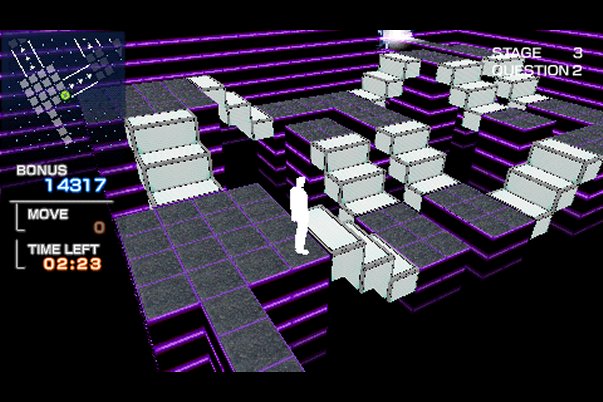Why you can trust GamesRadar+
There is, however, a dark side to all of this: Unless you're a genius, some of the levels are guaranteed to make you angry. For example, one particularly epic (and frustrating) stage near the end forces you to build a staircase by fitting together irregular blocks, build another staircase going down and then dodge a flashlight guard while carrying weights from the beginning of the stage to a pressure-sensitive door near the exit. This level is emblematic of PQ's chief flaw: While it's addictive as hell, it takes a long time to muddle your way through some of these puzzles, and undoing 10 minutes of work by accidentally stepping in front of a guard or a laser is the sort of thing that induces psychotic rage.

Checkpoints would solve this, although that would probably be cheating. Interestingly enough, though, cheating is easy: once you've run down the timer and your moves trying to trial-and-error your way through a level, simply quit the game and restart the level. Provided you don't make any more mistakes, you're brilliant (at least as far as your score is concerned).
Weekly digests, tales from the communities you love, and more
More info
| Genre | Family |
| Description | In spite of its flaws, PQ is an extremely addictive, innovative title that gives PSP-owning puzzle fans a welcome break from falling-block games. |
| Platform | "PSP" |
| US censor rating | "Everyone" |
| UK censor rating | "" |
| Release date | 1 January 1970 (US), 1 January 1970 (UK) |




